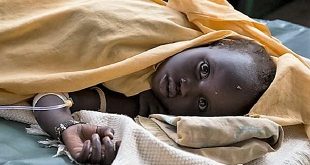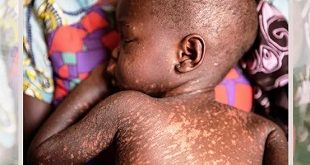
African Civil Society alliances vows to fight against malnutrition in Africa
Civil society alliances from several African countries have come together to moot strategies for achieving the sustainable development goal of attaining a world free from malnutrition by 2020, writes Susan Babijja.
The intervention to minimise the impact of malnutrition is led by the Civil Society Alliances in Africa through “Learning Route” that aims at fostering learning and sharing of best practices creating opportunities for increased collective action among members.
Countries involved in the Learning Route are Ethiopia, Kenya, Malawi, Sierra Leone, Nigeria, Tanzania, Uganda and Zimbabwe.
The plan is for the countries to learn from each other as a best way to lower the hiking malnutrition problem.
According to a report by the World Health Organisation, in Africa, the number of underweight children actually increased between 1990 and 2000 (from 26 million to 32 million), and 25% of all children under five years old are underweight, which signals that little changed from a decade earlier. The projection is that the prevalence of child malnutrition will continue to decline in all regions but Africa, which is dominated by the trend in sub-Saharan Africa.
Rwanda has low malnutrition statistics. Available statistics indicate that Rwanda made strides in improving nutrition, reducing under nutrition from 56 per cent to 32 per cent between 1990 and 2015statics. Statistics from the National Institute of Statistics of Rwanda (NISR) indicate that 38% of children under five have growth problems, 9% are underweight while 3% face hunger.
Western Province tops with the largest number of children with stunted growth at 45%, followed by Southern province at 41%, Northern Province at 39%, Eastern Province 35% and Kigali city at 23%.
According to the Chairman SUN Alliance Rwanda, Robert Magabe Butera, Rwanda registered achievements that others can learn from.
“For example, in breastfeeding, Rwanda is at 87 per cent,” Butera said, “They can emulate that as well as learn from Rwanda’s political will to fight malnutrition.”
“We need to eliminate malnutrition; we won’t shy away from learning and seeking solutions, nutrition is a crucial sector that affects development of children,” he added.
Butera said Learning Route will identify and examine innovative and successful initiatives by Civil Society Alliances to scale up nutrition at community, provincial, and national levels.
“We can identify effective social mobilization and communication strategies to raise awareness on nutrition sensitive issues and behavior change,” he said.
The Minister of Health Diane Gashumba said that some regions have children less than five years suffering stunted growth and malnutrition not because of food shortage but because of ignorance on proper feeding regimes.
“We have made significant progress in nutrition but we have not achieved our goals,” she said adding that, “We are working with other ministries through social clusters to address malnutrition”.
“Parents have inadequate knowledge on the proper quantities and quality of food they are supposed to serve their children. There is also the problem of hygiene. Balanced diet with the absence of hygiene would be useless in controlling diseases,” she said.
The government of Rwanda embarked on distribution of fortified seeds for beans and sweet potato planting material as a strong nutrition education programme as well as implementation of the joint venture between the Government of Rwanda and Africa Improved Foods Ltd (AIF) that aims at manufacturing enhanced nutritional foods for children and pregnant and lactating women.
Richard Baguma, the Chairperson Uganda Civil Society Coalition on Nutrition, said malnutrition is an old problem that people have failed to understand. It is s more than a health issue because it requires different interventions, he said.
“We have similar problems in every country in Africa when it comes to malnutrition, for instance lack of awareness or ignorance among people,” he added.
He explained that there is a double burden; there are those with over nutrition even among children and the poor with stunted growth. Over malnutrition is also becoming a challenge where many children are obese.
Half of all deaths in children under 5 are attributable to under nutrition which leads into the unnecessary loss of about 3 million young lives a year. This is mainly caused by poor nutrition in the first 1,000 days of child’s life, this can also lead to stunted growth, which is irreversible and associated with impaired cognitive ability and reduced school and work performance.
Early in the week, the Society For Family Health (SFH) conducted malnutrition training in partnership with Women Council to over come malnutrition.
****
editor@independent.co.ug
 The Independent Uganda: You get the Truth we Pay the Price
The Independent Uganda: You get the Truth we Pay the Price


